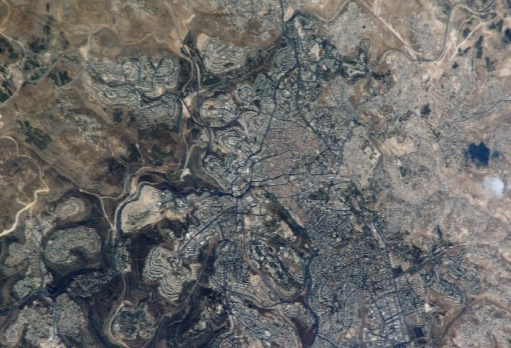Civilization
How Does Israel’s 10/7 Crisis Compare with other International Crises in Modern History?
The 10/7 crisis in Israel is a one-of-a-kind event that still shares features in common with other international crises in history.

Israel is engaged in one of its most challenging international crises since at least the Yom Kippur War of 1973. On October 7 (henceforward referred to as 10/7) Israel suffered the worst terrorist attack in modern history in proportion to the number of its inhabitants. As United States President, Joe Biden, said, 10/7 was like 9/11 multiplied by 15. This would amount to around 45,000 people, instead of around 3,000, that would have died on 9/11.
Assessing 10/7 in historical perspective may lead us to understand, beyond the singularity of the unprecedented attacks carried out by Hamas, the similarities of this international crisis with other international crises in modern history.
How does Israel’s current crisis compare with other international crises in modern history?
Henry Kissinger once wrote, “There cannot be a crisis next week, my schedule is already full.”
The irony of Kissinger’s statement reflects a basic truth about international crises. Decision-makers are usually surprised when a crisis erupts. They are either strategically or tactically surprised. In the first case, decision-makers are surprised by the event itself; in the latter by its timing and/or location.
For instance, the Japanese attack on Pearl Harbor on December 7, 1941, the invasion by North Korea of South Korea on June 25, 1950, and the terrorist attacks on the United States by Al Qaeda on September 11, 2001 (popularly known as “9/11”) were all strategic surprises for the United States. U.S. decision-makers were surprised by the event itself.
The attack by Hamas on October 7, 2023, was a strategic surprise for Israel. Israeli decision-makers were surprised by the attack, by the event itself.
A strategic surprise is sometimes followed by confusion, disorder, and uncertainty. The terrorist attacks on the United States on 9/11 are a good example of that. The U.S. administration was at a loss to know what was happening, endeavoring to understand the sequence of events and uncertain as to the challenge it was facing. With the benefit of hindsight, we know that there were four civilian aircraft, which engaged in the attack. During that critical day of September 11, nobody knew how many airplanes were involved, and how long would the terrorist onslaught last. Indeed, the United States was on full alert for many days afterwards.
When Israelis heard the sirens at 6.30 AM, they thought they were facing a rocket attack on their towns and cities. Only gradually did news emerged of a terrorist incursion into southern Israel that was taking place at the same time. There was confusion as to the number of terrorists that had managed to penetrate Israeli sovereign territory, and only fragmentary knowledge as to the civilian centers of population they were attacking. The picture became gradually clearer, but uncertainty reigned throughout the day, and the days that followed.
Another characteristic of international crises is the assumption by decision-makers that the time at their disposal to respond is relatively limited, certainly as compared to a non-crisis situation. Following the invasion by North Korea of South Korea, the U.S. administration of President Harry Truman, reacted swiftly by introducing two resolutions at the United Nations Security Council, which afforded legitimacy for its subsequent military response. Time was pressing as the North Korean forces were advancing deep into South Korean territory.
However, the sense that a response is called for immediately might lead, with the benefit of hindsight, to seemingly erroneous decisions. U.S. President John F. Kennedy, revealed following the Cuban Missile Crisis of October 1962, which emerged in the wake of the placement of nuclear missiles by the Soviet Union in Cuba, that, had he had to decide how to respond within 48 hours, he would have ordered an aerial attack of the Soviet missiles. Having had a week to decide, he finally chose to institute a naval blockade of Cuba accompanied by an ultimatum that the missiles must be removed. The crisis was finally resolved peacefully.
There was a similar sense in Israel that a rapid response was called for in the wake of 10/7. Indeed, the aerial bombardment of Hamas objectives in Gaza by Israel began while Israeli soldiers were still fighting Hamas terrorists still in Israel. To be sure, the attacks by the Israeli Air Force, which intensified as the days elapsed, afforded precious time to Israeli decision-makers to devise a plan of action. In a sense, the Israeli Air Force gave Israeli decision-makers ‘the week’ President Kennedy needed during the Cuban Missile Crisis.
Another characteristic of an international crisis relates to the decision-making process. Usually, during international crises, relatively small, ad hoc fora are created for consultation and decision. The EXCOMM (The Executive Committee of the National Security Council) became the principal decision-making setting during the Cuban Missile Crisis. A smaller group composed of President Kennedy and his closest advisers was set up in the second week of the crisis. During the Falklands-Malvinas Crisis of 1982, which erupted following the Argentinean invasion of the Falklands-Malvinas islands, British Prime Minister, Margaret Thatcher, established a War Cabinet composed of a few ministers. Similarly, the Israeli government set up a War Cabinet composed of a few ministers, which has become the main decision-making unit in 10/7.
The role of diplomacy in international crises is singularly important. Obviously, diplomacy has a role in attempting to solve an international crisis peacefully. However, diplomacy may be required to create propitious conditions to solve a crisis by force. Diplomacy can afford support and legitimacy to deploy military forces. That is precisely what the United States did following the invasion of South Korea by North Korea in 1950, of Kuwait by Iraq in 1990 in what became known as the First Gulf Crisis, and of Afghanistan in the wake of 9/11. Diplomacy was a tool for the United States in those crises to secure the forging of an international coalition that would support and afford legitimacy to a military response. Israel did likewise in the crisis that led to the Six Day War of 1967. To elicit the support of the international community, and the United States in particular, Israel resorted to diplomacy to solve the crisis peacefully, even in the light of increasingly menacing moves by Egypt. Israel had to demonstrate that it did its utmost to prevent war. In the latest crisis, Israel has made ample use of diplomacy to secure the backing of its friends to be able to conduct its military operations. Indeed, diplomacy has had a vital role in securing U.S. diplomatic and military assistance. The United States, for its part, resorted to diplomacy in order, not only to show support for Israel, but also to try to contain the crisis within the confines of the Israel-Gaza border.
Thus, 10/7 should be regarded as a sui generis terrorist onslaught like no other in modern history, but at the same time as an international crisis sharing certain similar features with other international crises in modern history.
This article was originally published by RealClearDefense and made available via RealClearWire.
Yoav J. Tenembaum is a lecturer in International Relations at Tel Aviv University. He holds a doctorate in Modern History from Oxford University and a master’s degree in international relations from Cambridge University.
-

 Accountability2 days ago
Accountability2 days agoWaste of the Day: Principal Bought Lobster with School Funds
-

 Constitution2 days ago
Constitution2 days agoTrump, Canada, and the Constitutional Problem Beneath the Bridge
-

 Executive23 hours ago
Executive23 hours agoHow Relaxed COVID-Era Rules Fueled Minnesota’s Biggest Scam
-

 Civilization22 hours ago
Civilization22 hours agoThe End of Purple States and Competitive Districts
-

 Civilization5 days ago
Civilization5 days agoThe devil is in the details
-

 Executive4 days ago
Executive4 days agoTwo New Books Bash Covid Failures
-

 Civilization4 days ago
Civilization4 days agoThe Conundrum of President Donald J. Trump
-

 Executive4 days ago
Executive4 days agoThe Israeli Lesson Democrats Ignore at Their Peril










